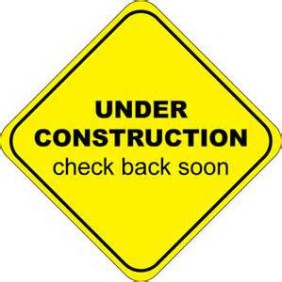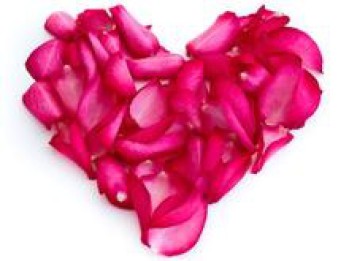Homeopathy & Health
It is our pleasure, purpose and goal to share Connection - Holistic Lifestyle - Alternative Healing Treatments - Living Happier with New Thought - from original sources.
GlobalCnet is a collection of links to original thought, research, new ideas and found expert advise. We have assembled extensive information and facts to inspire YOU to further your education, skills and desires on your specific subjects. When you click on a blue link, you arrive on a web site, do your research, and observe all the other articles available to you. Record what you need. Share what your learned
GlobalCnet connected you, to make better informed decisions.
This is a teaching and informative Web Site again, presenting original authors, like Harvard University, MedNet, Unstuck.com, Readers Digest, Mental Health and documents from millions of Web Sites which were written, published and illustrated with specific content to expand your knowledge for personal growth, health and answers. All this WWW content was meant for your reading and answers,
GlobalCnet just connected you.
It is our hope that you use all information for further answerers, ideas for more exploration and the wisdom to share discoveries with others. It is all about having the right fast or safe connections. Everything has atready been discovered, be smart and use proven methods and spin your solutions to fit your needs.
Any questions, comments or to just say hello...leave a webmail .
Quick links to information and new ideas. click here.
OK...you are now on GlobalCnet. You can use the SEARCH BAR to quickly find subject information, or you can visit all the pages. Your visit will award an organized starting point leading to answers to your challenge.......just do it. Type in a word and hit search.
- Michael J. Malette, PhD
Founder, Global Connection Network, Inc.

Homeopathy & Health
Like Cures Like
Homeopathy demonstrates that a substance that produces a certain set of symptoms in a healthy person can cure a sick person experiencing those same symptoms. For instance, onions make your eyes water when you cut them. If you have a cold or allergies and your symptoms include a runny nose, the likely remedy to treat your runny nose would be Allium Cepa, which is made from onions.
Minimum Dose
Unlike conventional medicines, a homeopathic medicine is believed to be more effective when its active ingredient is diluted and succussed (shaken vigorously). Data indicates that the homeopathic medicine gains increased effectiveness with each additional dilution-succussion step. Furthermore the safety profile of the medicine increases with increased dilution.
How homeopathy went from fringe medicine to the grocery aisles
Homeopathy is a school of alternative medicine based on the principles that “like cures like,” that less is more, that a detailed patient intake is necessary to get to the root of a medical issue. After she recovered, Grams devoted herself to it, not only as a patient, but as a practitioner. She first completed her medical training, and then, after seven years of homeopathic training, including 300 hours of coursework that cost her a not-insignificant sum (weekend trainings were as much as 300 euros, or more than $300), Grams became a licensed medical homeopath. And she opened her own practice.
Moderne Wellness – Holistic Solutions
Glad To Be Alive The Path To Adulthood – Healing The Pain Becoming The Adult Overcoming Loneliness – Part Two How To Overcome Loneliness How We End Up In Misery How To Deal With Loneliness Emotional Abuse Test Emotional Health – What Millions Still Don’t Know Emotional Insecurity Help You Have Emotion You Have Beliefs You Have Choice You Are Enough You Are Loved You Have A Heart
EMOTIONAL HEALTH –
EMOTIONAL HEALING –
EMOTION –
A fusion of thought and feeling that expands your consciousness.
The perfect fit

A holistic lifestyle coach on how we can prioritise our health this year — from getting better sleep to choosing the best diet
By LUKE COUTINHO
The beginning of the year is always a great time to start afresh and reboot and reset your health and lifestyle. Based on some of the most effective lifestyle habits, wellness myths and effective
hacks to improve one’s health, here are a few takeaways that will take you a long way in meeting your health and nutrition goals:
■ Habits to inculcate
Early dinners and fasting the circadian way
Our body is not designed to digest meals as the day comes to an end. It’s designed to detoxify, heal, repair, recycle and rejuvenate. So, a heavy, late meal will not go down well with your system.
This is because we thrive only when we live according to nature and its rhythm. Nature teaches you to live according to the circadian rhythm. Living this way means one must finish eating close to
sunset, followed by fasting all through the night, and eat the first meal after sunrise.
Prioritising sleep
Sleep well and prioritise it. Every cell in your body needs that downtime to grow, repair and detoxify. The year 2020, in particular, is one where we must focus on quality sleep to enable wellness,
immunity, mental health and healthy weight gain. It’s the foundation of all health. We must also incorporate this into our children’s lifestyle.
Meditation and deep breathing
With a growing concern about declining mental health, we must schedule some time every single day to meditate and reflect on our life, even for two minutes. Meditation may not take away your problems
or mental stress, but it helps put you in a state of peace and leads to clarity and inner strength. It anchors you to the present moment because too many of us are simply worrying about our future
and invariably, predicting the worst. Sometimes, one doesn’t need to stop the mind from wandering. Just allow the thoughts to come and pass through without reacting. Being aware of everything, yet
not reacting is mindfulness Use an app if you need to, but a minimum of two minutes of meditation with a few rounds of abdominal breathing will help prevent the burnout resulting from chronic
stress.
Not obsessing over diet plans
When it comes to nutrition, keep it simple and flexible. Listen to your body. Its needs are dynamic and can change from day to day. Do not follow what’s working for your neighbour or friend because
each of us are different. It’s necessary to have a personalised approach. Have a diet structure but make sure not to have a rigid mindset. Eat when hungry, fast when not. If you truly feel like
eating a dessert (and do not have any specific medical condition that requires you to refrain), have it with no guilt. This lays the foundation for developing a healthy relationship with food. Eat
food with an intention to energise your cells and provide them with the raw materials they need to maintain your health. If you approach food this way, you are bound to make wiser choices.
Limit screen time
Too many of us are completely absorbed in gadgets and social media and it’s robbing us of our time, health, sleep and confidence. Technology is not bad, but we need to learn to create a balance.
Start by having some phone-free time every day or try to have ‘no social media Sundays’.
Diet swaps
In general, we must move from complicated diet plans to simple lifestyle changes. Embrace local and traditional diets over established Western ones. Seasonal foods over exotic imported veggies that
have travelled long distances to reach you. Unrefined foods over refined and processed foods that are stripped off nearly every nutrient.
■ How to meet goals and stay motivated
Self-discipline and attitude
Self-discipline is key for sticking to any goal. Almost everyone sets New Year resolutions, but it takes self-discipline to make them last. We don’t need fad diets, exercise programmes, supplements.
We need ‘action’, with self-discipline. Without this, we will keep chasing one goal after another, one gym after the other, switch diets and spend loads of money without achieving much. Instead,
let’s teach ourselves self-discipline.
Have your discipline set for you, the same way you brush your teeth every morning. Slot in your exercise time, meditation time, eating time, rest and sleep time and practise it until it becomes a
part of your life. It will require you to give up a little, compromise a little, let go a little — but it’s worth it.
■ Recuperating from the binge
Listen to your body
If you’ve had a late-night dinner, chances are, that you may wake up feeling heavy and stuffed the next day. Please honour that and refrain from eating because it’s a bio feedback from your body that
it’s still in the elimination and detoxification mode and isn’t welcoming more food. This is the perfect time for you to practise intermittent fasting (just be on plain water) or practise dry fasting
(without water) if it suits you. It’s important to get in tune with your body because once you learn this, it can become your way of life. Something as simple as simple as fasting can go a long way
in benefitting your lifestyle, health, weight, acidity and immunity. You don’t have to go on any strict detox plan during the party season. Just having fruits, soaked nuts and seeds from breakfast to
lunch and lemon water is enough. This is called “raw till lunch” and is the best way to let your body recover from unhealthy binges.
Foods that love your liver
Everything you have consumed (food or alcohol) ultimately reaches the liver. Foods that are unhealthy can be a burden for your liver because it is responsible for detoxification. It helps to add
foods such as lemon, pure extra virgin olive oil, cruciferous vegetables (cauliflower, broccoli, cabbage), radish and radish leaves and sugarcane that aid the liver.
■ Myths about diet and nutrition
Rice is fattening and so are mangoes
We need to stop blaming food for making us put on weight, and reflect on our lifestyle. Natural foods like rice, mangoes, bananas and dates are foods that nature has given to nourish us. We just need
to know how, when and how much of it we should consume. Heaps of rice with little or no fibre and a sedentary lifestyle will surely affect your blood sugar levels and weight. We need to start
changing our lifestyles and learn to have a balanced diet.
Indian diet lacks protein
An Indian diet that’s not balanced well may lack protein, but a well-designed and balanced diet does not. In fact, it is one where the beauty lies in the synergy between the ingredients. A
combination of lentils/pulses/legumes with cereal gives us complete protein. Our normal staple Indian dal and rice is one such example.
What is complete protein? There are 20 amino acids. Nine of them are essential. This means that nine of these amino acids cannot be made by our body and we need to get it from food sources. Now, when
you look at the combination of dal and rice, it’s a complete protein. Lentils have an amino acid called “lysine” which rice lacks and rice has all the sulphur-based amino acids that lentils
lack.
Overdoing on alkaline
Our body needs to be alkaline at the right time and in the right parts. There are many myths around alkaline diets, which includes hugging alkaline water and lemon shots after meals. Anything less than 6.8 (overly acidic) or higher than 7.8 (overly alkaline) is dangerous for the human body. So, in our attempt to keep our body alkaline, even the habit of drinking lemon water all through the day can backfire. In fact, a lot of functions even require the acidic medium, for example, digestion of proteins in the stomach or killing of harmful microorganisms in the gut.
5 strategies to eliminate fatigue

By Dr Vishakha Shivdasani
You’re only as old as you feel, goes the popular adage. But what if you feel old, tired, and rundown all the
time?
Fatigue is a feeling of chronic tiredness, or lack of energy that does not go away even when you rest. It is both mental and physical, ie, physical or psychological fatigue. It can be a response to
poor eating habits, emotional stress, boredom, or lack of sleep. In some cases, however, fatigue is a symptom of an underlying medical problem, like iron or vitamin deficiencies, or conditions such
as diabetes, sleep apnea or thyroid. Making lifestyle changes like increased physical activity and wholesome nutrition are important ways in which you can regain the lost energy. Here are five
strategies that one might follow.
1 Shed those kilos
The last thing you may feel like doing when you’re tired is working out. But exercise boosts energy levels almost immediately and actually causes changes in your body at a cellular or mitochondrial
level. It also stimulates the release of the hormones called endorphins. These are ‘happy hormones’ that bring about a feeling of positivity that helps fight the blues — that distinct sensation of
‘feeling low’. This, in turn, motivates you to exercise again to get the same rush of endorphins.
Exercise also improves the efficiency of your heart, lungs and muscles. Losing extra weight can also provide a powerful energy boost. Even small reductions in body fat improve mood, vigour and the
quality of life. Being overweight can increase the risk of fatigue for various reasons. These include having to carry more weight, and hence, increased likelihood of joint and muscle pain, and being
more likely to suffer from conditions such as diabetes or sleep apnea, of which fatigue is a common symptom.
2 Drink plenty of water
By the time you feel thirsty, you’ve already lost two to three per cent of your body fluid. Even this mild dehydration can make you feel tired or lethargic. Your blood volume lowers, which means you
don’t get as much blood to your brain, and your heart has to pump harder.
Dehydration has also been shown to decrease alertness and concentration. The colour of urine is a good indicator of dehydration — if urine is pale yellow, you’re fine. If it’s darker than that, you
are already dehydrated and need to drink up.
3 Sleep well
Lack of sleep is one of the leading causes of daytime fatigue. While an occasional night without sleep may make you feel tired and irritable the next day, it won’t harm your health. But if chronic
sleep deprivation continues, it can affect your overall health and make you prone to serious medical conditions, such as obesity, heart disease, high blood pressure and diabetes.
To improve your sleep hygiene, limit daytime naps to 30 minutes. Avoid stimulants such as caffeine and nicotine close to bedtime and keep the room temperature between 18 and 20°C. Make sure all blue
light (from screens) has been switched off an hour before sleeping as this can affect your body’s circadian rhythm (internal process that regulates the sleepwake cycle).
4 Reduce stress
Stress can zap you of the mental and physical energy needed to carry out your day with ease. Stress hormones, especially elevated cortisol hormones can cause insomnia, and play havoc with your
overall health. Mindfulness practices such as yoga and meditation, are great options. You can also listen to music, dance or take a walk amid nature. Or simply curl up on the couch with your
favourite book or TV show. If your symptoms continue, seek professional help.
5 Correct nutritional deficiencies
Anaemia is an iron deficiency that is one of the commonest medical causes of fatigue, especially in women of child-bearing age. Speak to your doctor and have both your haemoglobin and iron levels
checked. Low values can lower immunity, making you more likely to develop illness and infection. Iron deficiency and anaemia can be treated by medicine or consumption of certain foods like leafy
green vegetables, meat, beans, peas, lentils and nuts.
Check vitamin B12 — your body needs sufficient amounts in order to produce healthy red blood cells. So a deficiency in this vitamin can also cause anaemia. Every vegetarian should take a B12
supplement as vegetarian sources of B12 are sparse.
Check vitamin D levels — a deficit can sap bone and muscle strength. Your body produces this vitamin when your skin is exposed to sunlight, but there aren’t many natural food sources of it. So either
ensure that you get 20 to 30 minutes of sunlight a day or take a supplement after blood tests.
The author is a medical doctor specialising in lifestyle ailments and weight management
What is self-care? The three pillars of self-care explained and how to tackle them in microsteps
Did you know that self-care is actually made up of three pillars? More than just taking a relaxing bath every now and then, this is how to holistically incorporate self-care into your life without feeling overwhelmed.
The term self-care was created to encourage a culture of looking after ourselves. But, while nothing should be easier than spending time with ourselves, self-care can feel surprisingly inaccessible. In fact, for some the term feels vague and intimidating.
It’s easy to see why. There’s so much advice out there on different activities or exercises to do, what to eat and how to bathe, that sometimes we can lose sense of what self-care really encompasses.
Writing for Psychology Today, Carlin Barnes MD and Marketa Wills MD, MBA, explain that to really understand and embrace self-care, we need to look at it like a triangle, made up of three equal pillars.
More than going for a run to clear your head, taking a warm bath or taking up knitting, a holistic approach to self-care means thinking about your body, mind and social environment.
Self-discovery journal prompts and goal planners to help you achieve your dreams in 2020
“One of the frameworks that we learned in medical school is the use of the ‘bio-psycho-social model’ to formulate treatment plans for our patients,” explain the psychologists.
“By using this framework, we make sure to think about our patients in a holistic way taking into consideration their biology (eg genes and physiology), their psychology (eg one’s inner mind) and their social circumstances (eg the eco-system in which patients live). We’re going to go back to our medical school roots and borrow this framework to explain self-care.”
For the three pillars, experts advise a set of actions that should help you feel more rested and reconnected to yourself, as you can see below.
Biological
Drink plenty of water
It’s an oldie, but a goodie – keeping hydrated is so important to ensuring that we’re feeling healthy, thinking straight and helping our bodies function properly. Sipping water throughout the day is better than gulping two glasses when you get home, especially if you’re exercising.
Get between seven and nine hours of sleep each day
Sleep is crucial, but for some it can be elusive. From podcasts to help you drop off, the art of napping (it’s more complex than you might think), understanding how the weather affects our sleep patterns and getting a good bedtime routine down, our sleep hub has unlimited advice on how to get a better night’s kip.
Exercise three to five times a week for at least 30 minutes
The benefits of exercise are well proven for both the mind and the body. Studies have shown that doing 30 minutes of exercise in the morning can boost productivity, while celebrities like Jameela Jamil and Davina McCall have shared their own experiences of how exercise can help mental health.
Eat healthy nutritious foods and avoid processed and/or fatty foods
Although we’d never suggest that you deny yourself eating whatever you feel like, getting a good fill of foods that stabilise your blood sugars such as fruit, vegetables, fish and nuts, will help you feel focused all day at work and keep you well-powered to achieve your goals.
Make and keep preventative healthcare appointments
Doing this not only keeps your health in check, but it helps deal with any anxieties around the subject, such as cyberchondria. This is when someone feels compelled to obsessively google symptoms, something we’ve seen a rise of in the digital age.
Psychological
Carve out ‘me time’ twice a week (eg bubble bath, burn a candle, get a massage)
’Me time’ is different to reading, exercising or even taking up a hobby such as knitting (which can contribute to self-care) – it’s about really relaxing and essentially, doing nothing. Just like the Dutch concept of niksen (of which the entire point is to take time where you’re not focused on achieving anything at all), just sitting with yourself or running a bath (and we have the perfect recipe for that) is the way to do it.
Practice mindfulness and/or deep breathing exercises for at least 10 minutes a day
Mindfulness has been praised for its benefits for the mind. There are so many ways you can incorporate mindfulness into your life, from mindful sex, shopping and fitness, getting better sleep and even overcoming your fears. As is suggested here, doing a deep breathing exercise or meditation is a good way to start.
Consider seeing a therapist in the spirit of growth and self-discovery
Choosing to start counselling is obviously a very personal decision, but if you feel that speaking to someone could contribute to your personal growth, it’s definitely something to think about. If you’re wondering what therapy could do for you, this Twitter thread of what social media users felt they learned from therapy sessions could be helpful.
Keep a gratitude journal
Journaling is a method of self-care that has risen in popularity over the last five years, and is particularly praised on social media through hashtags like #BuJu. Whether it’s writing down what you’re grateful for every day, keeping a diary or trying bullet journalling, getting all of your thoughts out on paper can be incredibly cathartic.
Set aside weekly time to plan, wish and set goals
Carving out some time for yourself to think about what you want is vital to ensuring you achieve your goals for the year ahead. We particularly love using happiness planners and self-discovery prompt journals, which can help you pin down exactly what you’d like to achieve and how to get there.
Practice self-forgiveness
We can be so hard on ourselves, but one of the biggest parts of self-care is being kind to ourselves. Whether it’s internally scolding ourselves on not getting exactly where we’d envisioned in our careers by now or feeling guilty for cancelling on those dinner plans (which you shouldn’t feel bad about, by the way), instead you need to think: “would I talk to a friend like this?” If the answer is no, then you shouldn’t be punishing yourself that way either – you’re the best friend you’ll ever have!
'Me time' is different to reading, exercising or even taking up a hobby such as knitting (which can contribute to self-care) – it’s about really relaxing and, essentially, doing nothing.
Social
Invest and nurture relationships that add beneficially to your energy level
It can be uncomfortable to face up to the fact that, sometimes, certain friendships are just not good for us. Friendships that may have once worked now feel difficult and draining. Perhaps they’re demanding on your time or make you feel anxious; whatever the reason, in order to preserve yourself and your happiness the best thing to do may be to cut them off. Luckily, we can tell you how to consciously uncouple with class, no ghosting required, to keep the vibes positive.
Find coping strategies for dealing with those who zap your energy
And if breaking up with a friend isn’t possible, then developing ways of coping with their behaviour is essential. Psychology Today advises methods to protect your mental health, as well as how to react in tricky situations.
Set loving boundaries and say no
Cancel anxiety is a real thing, but it doesn’t make you a bad friend if you can’t make that night on the tiles because you’re totally burned out. Setting boundaries and growing the confidence to say no when you need to is crucial to taking care of yourself.
Embracing mindfulness

TERMS OF ENGAGEMENT
A 19-year-old male client in therapy tells me: “I have started dating this girl from my college who is lovely, kind and thoughtful. When we are together, time just seems to fly away. She remembers the smallest of details from my life and is attentive in ways no one has ever been. When we are together, she never looks at her phone for hours. For the first time I feel someone is seeing me for who I’m. Sometimes this kind of mindful attention feels magical, doesn’t it?”
The client had been in therapy for over a year dealing with emotional and physical neglect he had experienced in relation to his parents. The new relationship felt like a soothing balm to him, where he felt accepted and loved. We discussed how his partner’s mindfulness in the relationship was so healing.
Everyone in our life, whether it’s a lover, partner, mentor or afriend who chooses to invest and give us their undiluted attention, are in subtle ways introducing us to mindfulness. Then, of course, we have little children who are experts at demonstrating mindfulness, until you introduce them to iPad and other devices. Whether it’s infants or children they not only give but demand complete attention. I remember a nine-year old client of mine who asked me: “Tell me, what can I do so that my mother looks at me as much as she looks at her phone?”
In the pursuit of finding mindfulness, people often confuse it as a solitary activity. They end up believing that they need to be cut off from others to find it. However, the reality is that
mindfulness can be sustained only when it touches every aspect of our life. Mindfulness needs to be a quality that we live inside out. Even if the journey towards it begins inward, the final goal
always is about integrating the narrative into our interpersonal relationships, work and daily routine. If we manage to do that, we are embracing it as a philosophy we live by.
On most days we live on an autopilot mode, almost going through the motions of life. We are so concerned with moving ahead that we have forgotten that we need to pause and experience the present
moment. It’s almost a chase, where everyone is heading towards the next big thing. The trouble with chasing goals endlessly is that nothing seems enough as we don’t give ourselves permission to
savour the moment. As Thich Nhat Hanh, a Buddhist monk and peace activist, says, “The opposite of forgetfulness is mindfulness.”
Our adult life is largely spent in the pursuit of forgetting and drowning uncomfortable feelings whether through social media, binge-watching serials or being continually busy. All of this is so
normalised that we believe since everyone goes through this, we have no choice but to live through this. Having said that, research shows we all are capable of cultivating mindfulness across life
stages.
Research shows that mindfulness can go a long way in improving our focus, attention and concentration. If you look closely, mindfulness is an exercise in all of these. Whether it’s the act of mindful
breathing or meditation, both involve our ability to stay with conflicting, continuous chatter and just observing it. As we train ourselves to watch these thoughts with mind’s eye and not react, we
begin to witness a process where our thoughts seem less intrusive and this in turn reduces our anxiety. This can help us in regulating our emotions and feeling centered.
There is solid evidence about how mindfulness-based meditation actually changes and impacts various areas of the brain. A lot of neuroplasticity research indicates that a mindfulness-based practice
can lead to rewiring of our brain circuits and contribute to better emotional health.
Whether it’s mindful walking, meditation, exercise, Tai-Chi, listening or breathing all of them lead us to mindfulness. However, choosing to depend on them only when in crisis, never helps. It needs
to become alifestyle choice that we continually work towards. As Eckhart Tolle
10 Tiny Ways You’re Hurting Your Brain Without Meaning To
How to protect your mind beyond exercising and socializing.

It’s no secret that one of the easiest ways to have a better life is to control our minds.
Emotional intelligence preaches that though we can’t control what we feel, we should control how we react, something ancient philosophers already figured out.
Stoics like Roman emperor Marcus Aurelius often wrote about controlling our minds and impulses to lead a wiser and more fulfilling life.
The problem is that that isn’t always possible.
If you have a healthy brain and no mental illness, controlling your mind shouldn’t be impossible. Things like self-discipline and emotional regulation are within reach.
But for people like my father-in-law, who suffered a brain stroke ten years ago, or my great-grandmother, who suffered Alzheimer’s, emotional intelligence is sadly impossible.
That’s why I believe caring for our brains and mental health should be our number one priority, the former being the most important.
Without a healthy brain, you can’t have good mental health.
Without a healthy brain, you can’t control your life.
In the past, I’ve written a lot about what we should do to keep our brains healthy, from the BRIGHT MINDS approach to a brain-healthy diet. Even about how to exercise every inch of your brain. However, I recently came across an interesting article byJon Hawkins, where he explains three everyday habits that damage our brain:
- Sedentarism.
- Social Isolation.
- Listening to loud music.
Hawkins’ article was a reminder that, to care for our brains, sometimes it’s more important to avoid bad habits than include good ones.
Below, you’ll find 10 ways — beyond the ones Hawkins explained — you might be hurting your brain without meaning to.
Becoming aware is the first step to prevent a brain stroke or a memory-related problem.
1. Not Getting Enough Magnesium and Potassium
Both magnesium and potassium are necessary to keep your blood pressure healthy.
If you don’t get enough, the blood flow to your brain decreases, the number one indicator of future memory-related problems.
Yikes!
But why is this something you should consider?
Because recent studies have shown that half of all Americans are magnesium-deficient and that 98% of American diets lack potassium.
To restore healthy levels of both minerals, introduce foods to your daily diet like:
- Potassium-rich foods (You need roughly 3,500–4,700 mg/day): Spinach, yams, avocados, bananas, cabbage, and fish, such as salmon.
- Magnesium-rich foods (You need roughly 310–420 mg/day): pumpkin seeds, spinach, almonds, cashews, peanuts, wheat cereal or bread, soymilk, and black beans.
You can also try supplementation but make sure to go to the doctor first.
2. Drinking Too Much Caffeine
According to brain-health expert Dr. Daniel Amen, too much caffeine can hurt your brain for two main reasons:
- Disrupts your sleep: “What caffeine does is, it blocks adenosine. Adenosine is a chemical your body naturally produces to help you with pain, but also to put you asleep when you’re tired. So, sleep is absolutely essential for your brain to clean and wash itself.” That’s why we often feel foggy if we didn’t sleep well.
- Reduces blood flow to the brain: Even 100 mg of caffeine — roughly one cup of coffee — reduces the blood flow to the brain, which, as I said before, leads to memory-related diseases.
So what can you do?
It depends. If you drink coffee because you don’t get enough sleep, work on sleeping better (obvious, I know).
If you do it because you enjoy the flavor, switch to decaf.
And, if, like me, what you love is having a warm drink as soon as you wake up, replace it with a healthier alternative like green tea, which is beneficial for our brain health.
3. Not Drinking Enough Water or at a Proper Time
Research cited in Dr. Amen’s book, Memory Rescue: Supercharge Your Brain, Reverse Memory Loss, and Remember What Matters Most, shows that brain tasks requiring attention and memory are diminished when you are just 2 percent dehydrated.
Therefore, drinking eight to ten glasses of water per day is paramount for good brain health.
Timing, though, is also crucial. “Avoid drinking water with your meals because it dilutes stomach acid, slowing digestion.”
Instead, drink 30 minutes before or an hour after your meal.
4. Abusing “No Brain” Activities
According to Dr. Amen, “watching TV is usually a ‘no brain’ activity.” In other words, too much time binge-watching stifles the growth of our brains.
Taken too far, it can even shrink it or lead to memory-related problems.
That’s why Dr. Amen recommends limiting our television (or anything similar like YouTube) intake to no more than 2 hours per day.
Even better, try to watch either funny programs (laughing boosts our immunity) or instructional documentaries (learning trains the brain).
5. Eating Too Much Sugar
“If you eat a fast-food diet, you will have a fast-food mind that is less capable of thinking and reliable decision making.”
— Dr. Amen
Several studies have found a link between sugar consumption and memory-related problems.
But this isn’t something only prediabetic or diabetic people should care about.
As Dr. Amen says, “even mildly elevated blood sugar levels are significant problems and are associated with brain atrophy, memory problems, and dementia.”
However, artificial sweeteners aren’t the solution.
Dr. Amen warns us that they can contribute to “chronically high insulin, which increases your risk for Alzheimer’s disease, diabetes, and other health problems.”
So what can we do if we love sweet treats?
First, we should try to limit our daily intake.
By learning how to read food labels, we can spot hidden sugar and avoid it. Here are some ways to identify it:
- Sugar
- Molasses
- Caramel color
- Barley malt
- Corn syrup
- Corn syrup solids
- High fructose corn syrup
- Honey
- Sorbitol
- Fructose
- Cane Juice Crystals
- Maltose
- Fruit juice concentrate
- Maltodextrin
Second, we can replace sugar with healthier options such as erythritol, a sugar alcohol; and stevia, a sweetener extracted from a herb.
They don’t spike insulin like other natural or artificial forms of sugar.
6. Not Learning Something New Every Day
Every single day, our brains produce up to 700 new neurons regardless of our age.
This is called neuroplasticity.
Put simply, it’s the brain’s ability to continue growing and adapting despite aging.
According to Marian Diamond, one of the founders of modern neuroscience, “with proper stimulation and an enriched environment, the human brain can continue to develop at any age.”
Beyond regular exercise, learning new things every day is a must if we want to continue growing our brains as we age.
After all, if your brain assumes you don’t need those 700 new neurons because you’re doing the same things you always do, it will just toss them aside.
To keep your brain strong, then, consider learning a new vocabulary word every day, playing a new instrument (this is extremely beneficial), meeting new people, etc.
7. Not Including Prebiotics and Probiotics in Your Diet
As Dr. Amen says, “chronic Inflammation acts like an ongoing, low-level fire that destroys organs.
Just as poor blood flow and oxidative stress can devastate your brain, so can chronic inflammation.”
Some things that trigger it are:
- Environmental toxins.
- Smoking.
- Low levels of vitamin D.
- Hormone imbalances.
- Gastrointestinal issues.
- Emotional stress.
- Pro-inflammatory foods: sugar and fast food.
To combat chronic inflammation, you can tackle the triggers, especially those related to gastrointestinal problems and hormone imbalances.
How?
By making your microbiome, the group of “good bacteria” that live in your gut, as healthy as possible through the consumption of prebiotics (beans, lentils, onions, fruits, cocoa, …) and probiotics (full-fat yogurt, cheese, kimchi, sauerkraut,…).
You can also try supplementation but make sure to go to the doctor first.
8. Not Flossing Your Teeth
When we don’t floss our teeth regularly, gum disease follows.
And when we have gum disease, chronic inflammation spreads across our bodies, deteriorating our brains.
That’s why, though annoying and time-consuming, we should floss our teeth at least once every day. Our future selves depend on it.
9. Playing Sports That Lead to Head Injuries
Dr. Amen says in his book that he would never let his children play football.
As shown in the 2015 film “Concussion”, a head injury can damage the brain irreversibly.
It diminishes the overall blood flow to the brain and can destroy brain areas forever.
Though not playing some sports can make life a little less fun, taking care of our brains is more than worth it.
We must remember that though our skulls are hard, our brains are not.
10. Handling Cash Register Receipts
Cash register receipts have a plastic coating that can get absorbed through our skin, filling our bloodstream with toxins that reduce cerebral blood flow, damage the DNA, disrupt our hormones, and impair the immune system.
It’s better, then, to get digital receipts or handle physical ones with gloves.
Now, you might be thinking: The quantity of BPA must be minimal.
True.
If you only handle cash register receipts, the number of toxins you get into your body is easily purified by your liver.
But our modern world is a toxin-rich environment.
Lead and arsenic from polluted water.
BPAs found in plastics.
Excessive alcohol.
Artificial food dyes, preservatives, and sweeteners. Herbicides and pesticides.
Health and beauty products with toxic ingredients absorbed through the skin.
Air pollution.
No matter where you go or what you do, you’ll likely come into contact with toxins.
That’s why we should try to reduce our exposure as much as possible through tiny things like not handling cash register receipts or using apps like Think Dirty to pick food that isn’t full of additives.
Other ways to reduce our toxin exposure are:
- Limit alcohol to two glasses a week.
- Include cruciferous vegetables (broccoli, brussels sprouts, cauliflower) into your diet for their detoxifying ability.
- Avoid buying lead-contaminated lip products.
- Quit smoking.
- If you can, eat organic.
- Don’t drink or eat out of plastic containers.
“Your brain doesn’t have to deteriorate.
With a little forethought, you can slow or even reverse the aging process in the brain.”
— Dr. Amen
LINKS TO DISCOVERY........
How Is Serotonin Actually Linked to Chronic Disease
5 Things You Need to Know About Intermittent Fasting and Chronic Illness
Click on these direct Globalcnet links and find specific information fast... DO IT NOW.
- How we Connect, How a connection works, click here
- Our many LIFE CONNECTIONS, click here
- BE SMART, HEALTH/LIFE Questions answerd, click here
- Current NEWS click this link
- LIFE CHALLENGES on your specific needs, conditions, thoughts for you,
or a friend, click on this link and look to your left
- Answers to 1000,s of Medical and Life QUSTIONS, click here
- HARVARD UNIVERSITY Health Information, click here
- WEDMD answers your medical questions, click here
- Alternative Medicine and HEALTH IDEAS, click here
- CRITICALhealth for Chronic Disease, click here
- 55+ Healthy Living ideas, click here
- PAIN MANAGEMENT, click here
- Holistic Health, Lifestyle Canges, Healthy Aging, click here
- Staying Healthy, click here
- Getting your life UNSTUCK, click here
- Using POSITIVE Pyscology for Happier Living, click here
- HOME PAGE 100's of additional places to visit, BE SMART, learn
and start you journey on the GlobalCnet enloy, click link
- Leave a Web Mail, a coment, question suggestions or just
to say hello. Was GlobalCnet helpful? Your ansers are all
appreciated, click here














